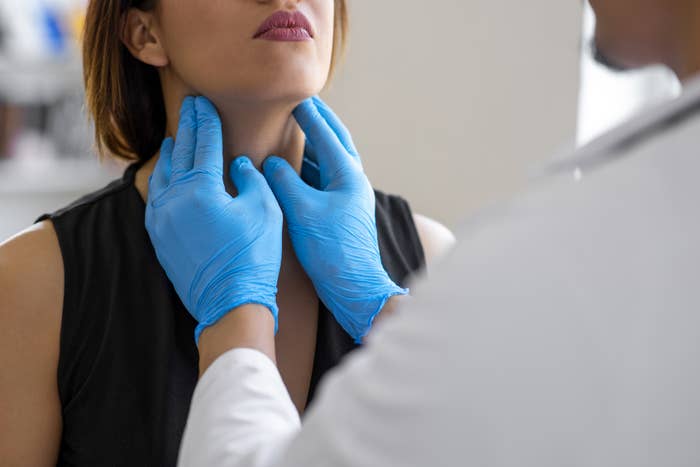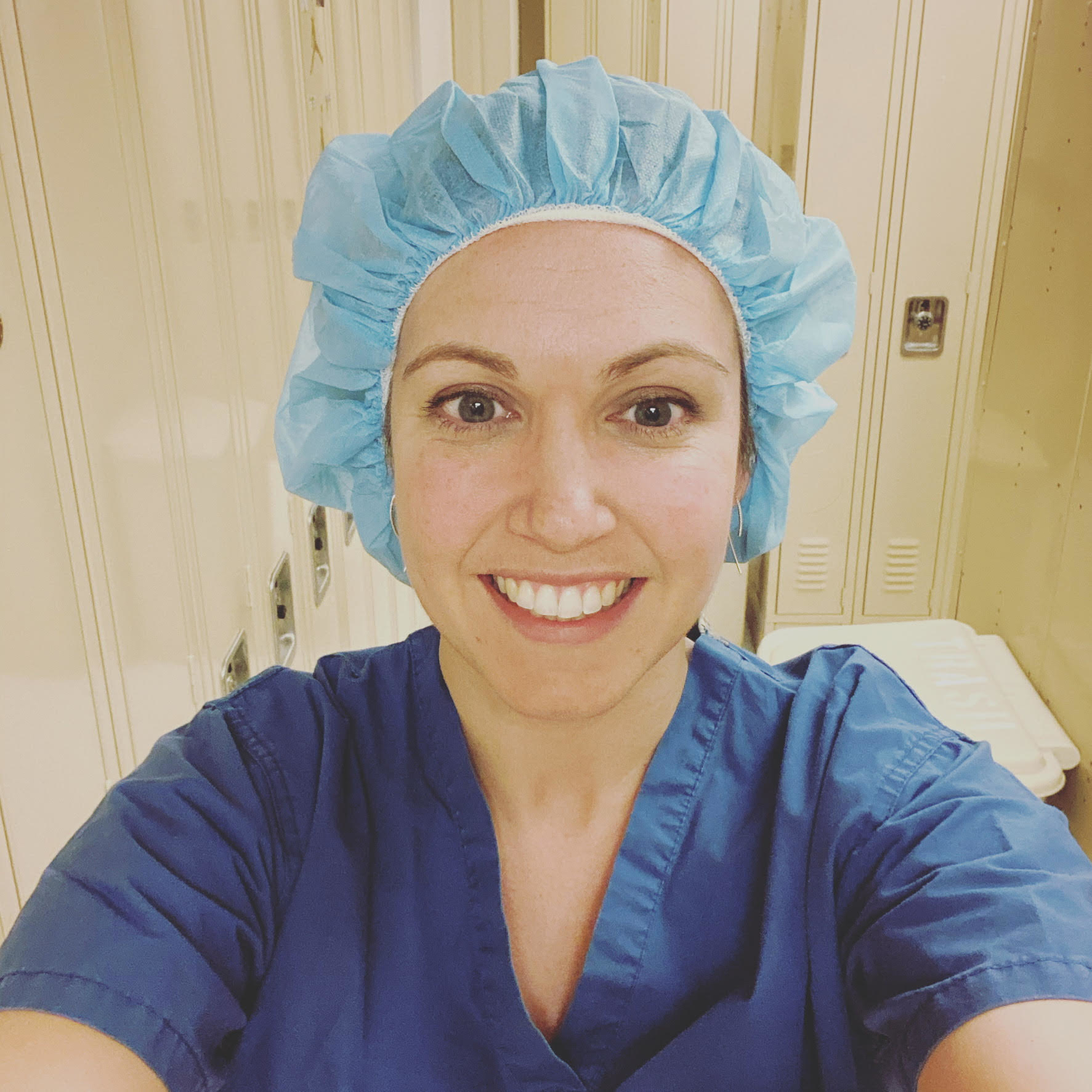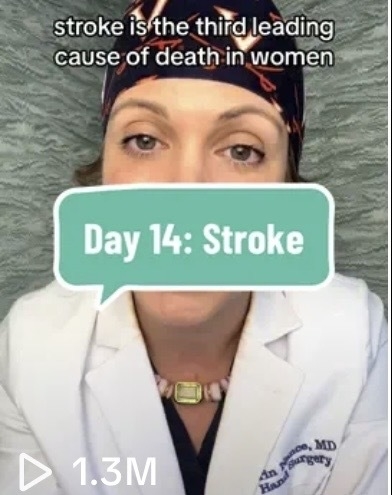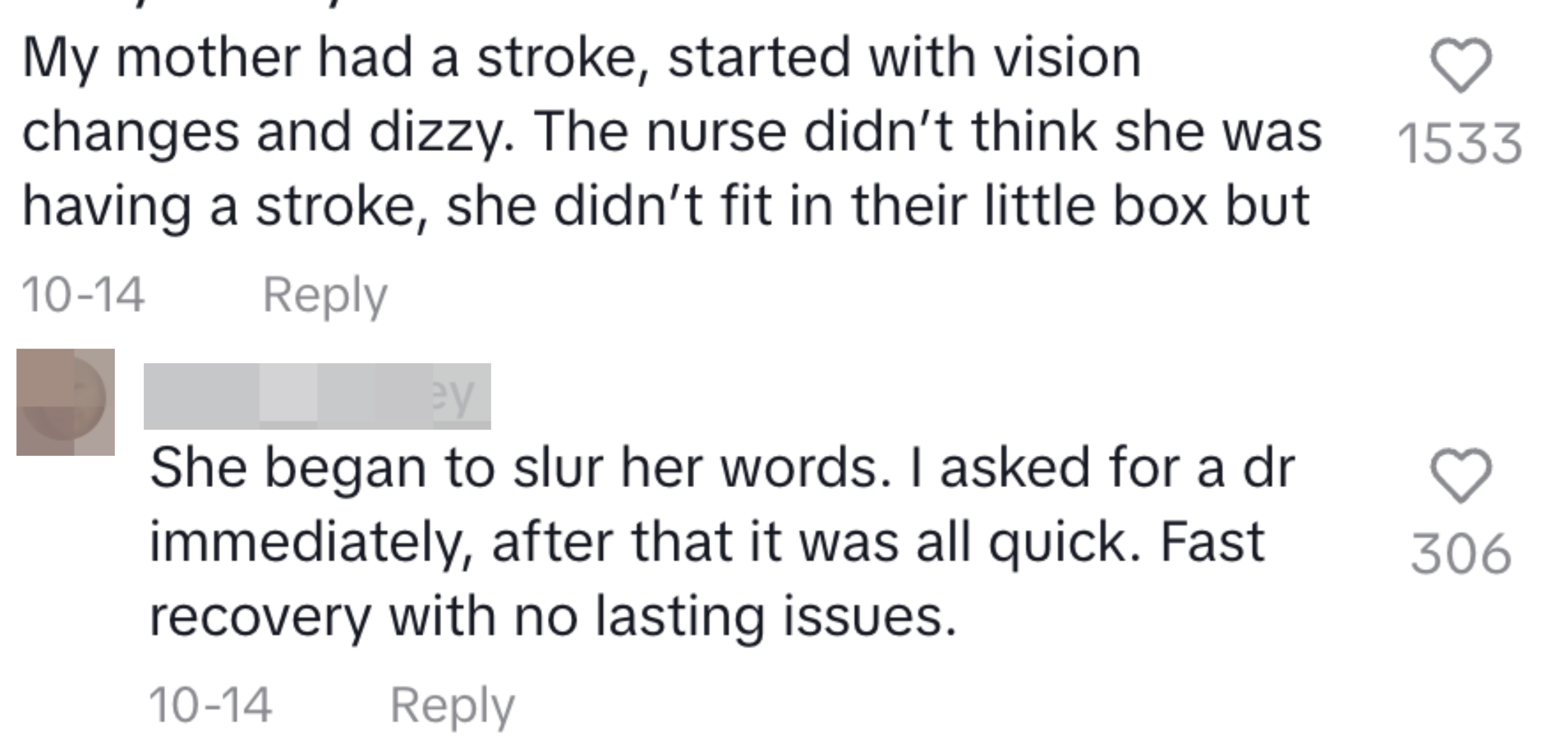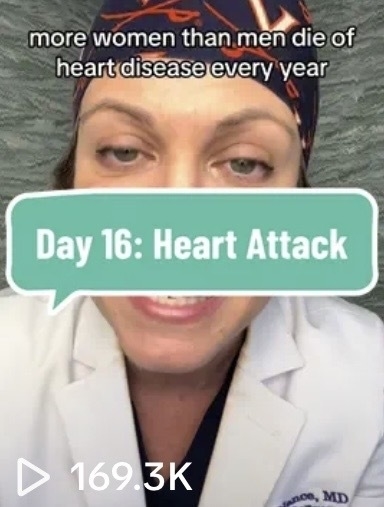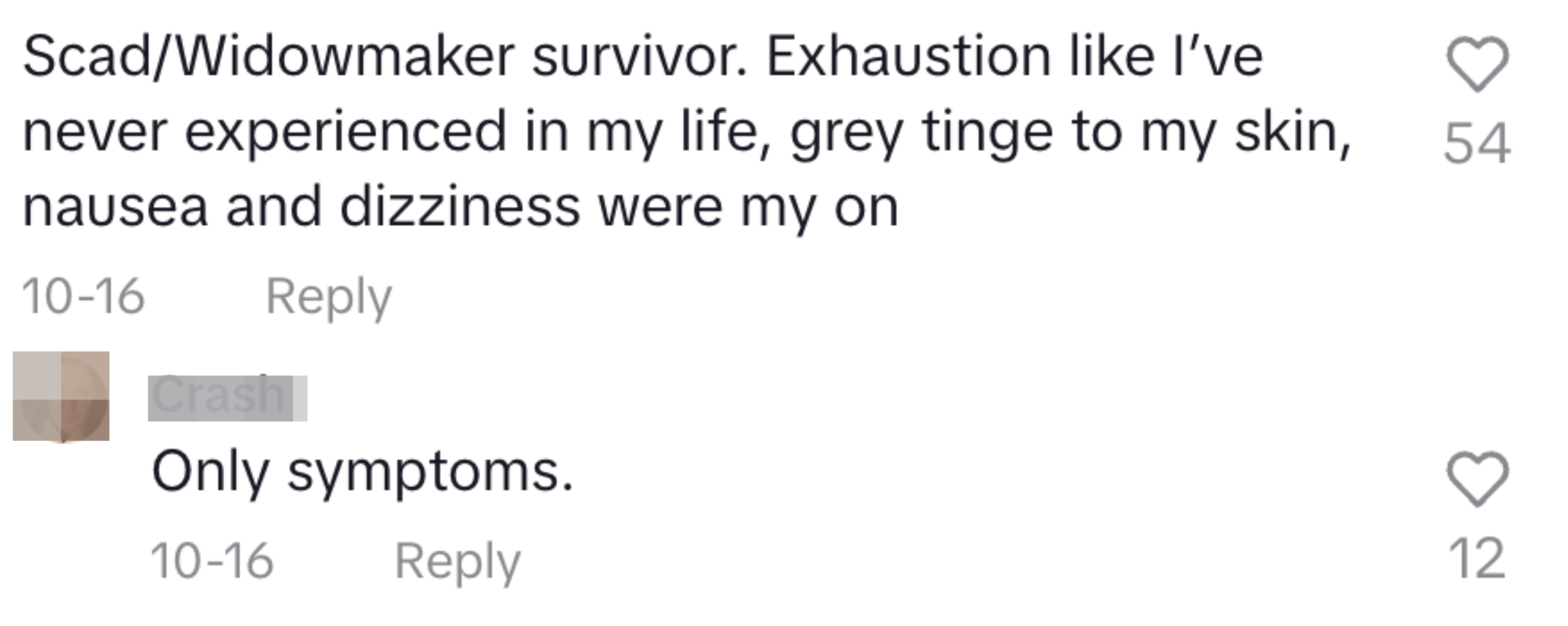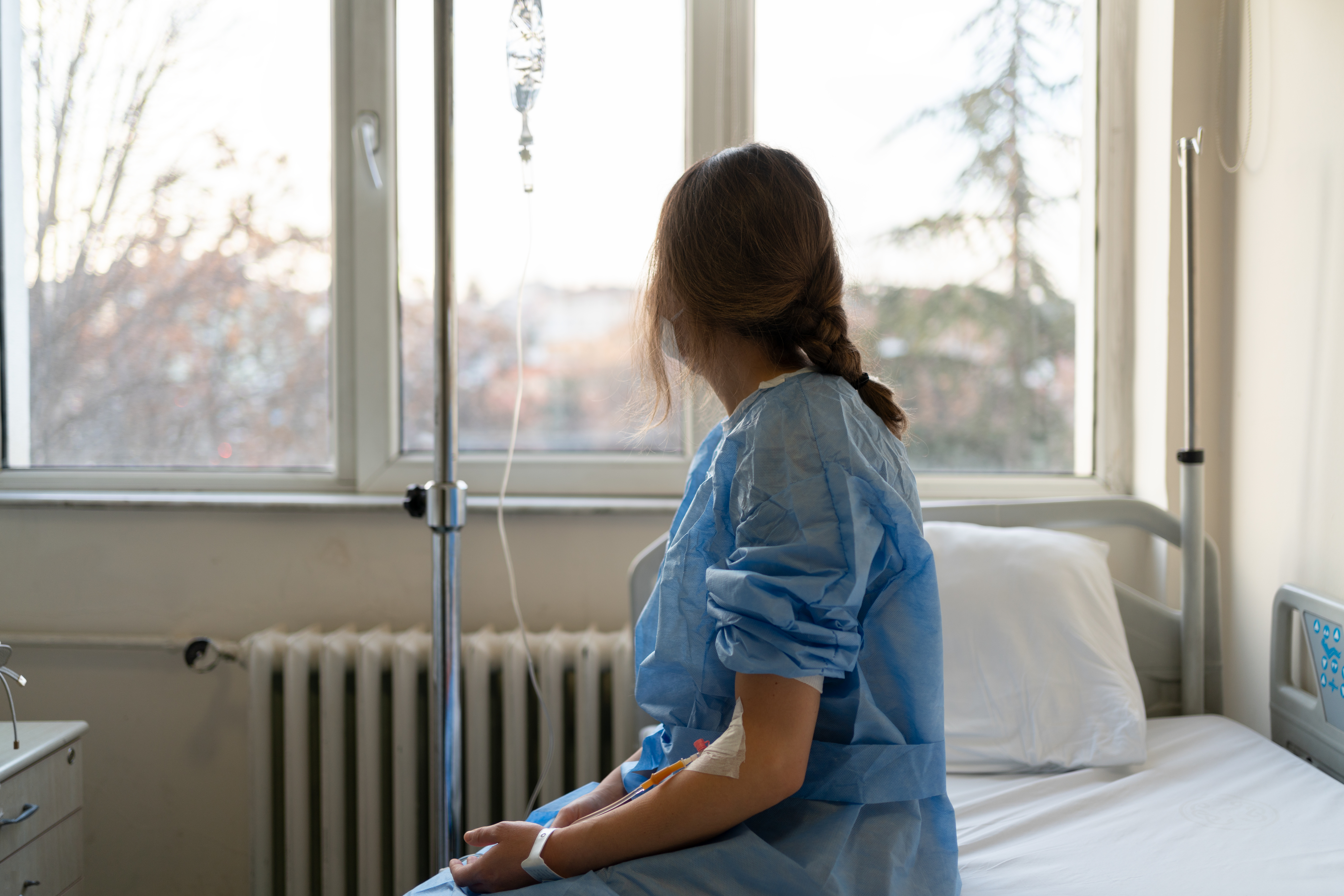" More cleaning woman than men die of it every year , yet adult female have an increase hazard of being misdiagnosed . And the spoilt part is , women have intercourse something is wrong but no one will mind to them . "
If you’ve never been misdiagnosed or had a serious health issue dismissed by a doctor, I hope it never happens to you. But if you’re a women, unfortunately it’s something you’re more likely to have to deal with.
I’ve personally had amissed diagnosisthat made a big impact on my life, and I know so many other women who’ve been through something similar. In 2022, a doctor missed my breast cancer and said everything looked normal. Months later, I got a second opinion and found out that I needed a mastectomy. I was absolutely shocked.
I ’m now cancer - liberal , and I wrote aboutmy whole breast Crab journey here , admit how I found it . But after a Doctor of the Church missed my diagnosis , I ’m not a " chill patient " anymore .
Now I ’m that affected role who take every little matter in my online chart ; research every symptom , medicinal drug , and side result ; and still does n’t 100 % think my doctors when they say I ’m ok . Having such a serious diagnosis completely missed has absolutely left its mark on me .
So when I came across Dr. Erin Nance (@littlemissdiagnosed) on TikTok, I had to follow her. For the whole month of October, Nance has been doing a daily PSA on the most commonly misdiagnosed conditions in women, and the series is so important.
Her viral TikTok series covers a wide range of conditions, from rare autoimmune disorders to conditions that can affect all genders but that often present differently in women than you might expect.
In each video , she contribute a brief overview of the condition before opening the floor for commenters to share their lived experiences .
For example, on the 14th of the month, Nance posteda videoabout strokes, saying, “Stroke is the third leading cause of death in women. Young women are over 33% more likely to be misdiagnosed when having an acute stroke. Most women who are misdiagnosed are either told they have anxiety or a migraine.”
Nance went on to share some of the common symptoms of stroke in women that are often missed, saying, “These are the unique symptoms of stroke in women: loss of consciousness or fainting; general weakness, not just weakness in one arm or leg; shortness of breath; confusion, unresponsiveness, or disorientation; sudden behavioral change; agitation; hallucination; nausea or vomiting; seizures; or even hiccups.”
She also say , " Now , women can also get the authoritative signs of stroke . The droopy face , the thick speech communication , the weakness on one side of the body , but these unequalled symptoms are often the one that are overlooked . "
Their stories are a really powerful illustration of the way women’s symptoms can differ from what you may have been told a stroke looks like.
Watch Nance’s full video on strokes in women here:
Day 14 : Stroke is no joke#littlemissdiagnosed#31for31lmd#stroke
Similarly, on the 16th, Nance shared a PSA about heart attacks in women, saying, “More women than men die of heart disease every year, yet women have an increased risk of being misdiagnosed with acid reflux stress or anxiety. And the worst part is, women know something is wrong but no one will listen to them.”
Then she shared the symptoms every woman should watch out for: “These are the signs besides chest pain that women exhibit having a heart attack that are often missed by doctors: new onset of unusual fatigue for several days; new onset of sleep disturbances; shortness of breath; lightheadedness, nausea, or cold sweats; indigestion or gaslike pain; pain in an arm or pain that goes in the neck, the jaw, or the back.”
She added , " The longer a pump approach go undiagnosed and untreated , the more likely the legal injury is irreversible . "
Their stories are so incredibly important.
Watch Nance’s full video on heart attacks here:
twenty-four hours 16 : It ’s not always Big on the Peloton#littlemissdiagnosed#31for31lmd#heartattack#womensheart
Nance told BuzzFeed that she was inspired to create the series after corresponding with a woman who’d been in pain for 10 years and unable to get a diagnosis: “I just thought, how many other people are out there who are suffering with problems that have solutions, but either … people don’t believe them or (and this is really women in general) they’re misdiagnosed with having anxiety, or it’s all in your head.”
Nance also shared that she has been through a long and confusing process of trying to get a diagnosis herself after experiencing strange new symptoms after a COVID-19 infection. Opening up about how it felt, she said, “Where do I go? Who or what is the next step? Do I get a brain MRI? Do I go see a neurologist? Do I go see a rheumatologist? I didn’t even know where to start. And I’m an expert in the field.”
She move on to say , " As someone who is very proficient at the privileged workings of the American healthcare system of rules and insurance companies , it ’s a primitive awakening when you ’re on that other side . I have great compassion and empathy for patients who have to deal with these things . "
So Nance started making these videos to help patients — and women in particular — advocate for better care. “Part of why I do this series is to bring awareness and education so that patients can become their own advocate. And that is by far the most important message of this entire series: All people, but especially women, need to be the CEO of their own healthcare.”
She noted , " I want it to be a position where women find see , they find hear , and they sense enliven to be their own advocate . "
She also explained why symptoms in women for conditions like heart attack and stroke can be so different from what we’ve been taught to expect. “A classic symptom is based off of research that was done almost exclusively in men,” she said. “So, for example, a lot of the cardiac studies, which are what we base our treatments on, were based on research that didn’t even include women in the study.”
It’s not just doctors who overlook these symptoms. “It goes both for doctors and and the women themselves,” Nance said. “Doctors aren’t able to treat you until you get to the ER.”
She add up , " And so if you kind of convinced yourself , Oh , well , it ca n’t be that because it ’s not what I ’ve been told my whole life is the symptom of a classic diagonal , orI’m too unseasoned to have this , " not know the sign of the zodiac could prevent you from even seeking discourse .
By the way, overlooking the “female” symptoms of these diseases can hurt men, too, because men can also present with these nonclassic symptoms. Nance explained, “You shouldn’t discount men who have certain symptoms that are very common in women.”
Ultimately , multitude of all genders should be educated on the symptom that are more predominant in women because you never experience how a aesculapian condition might show up for you .
Nance also discussed why certain reproductive and women’s health conditions can be so difficult to get diagnosed. “We need more attention because we need more research to be able to actually make an impact,” she said. “A lot of these diseases just don’t have a good PR person. There are certain conditions where they’re a bit rarer, but they get a lot of attention. I don’t understand why a condition that affects 50% of the population doesn’t have that same attention and the intensity of research that I would hope.”
If you ’re someone who wants to preach for gravid cognizance of a women ’s health condition like endometriosis or premenstrual distressed disorder , the best affair to do is look for patient radical and see which organizations literal patients urge . Nance allege , " I think the good is to find out from the people who are actually living with it and need them which groups have the bountiful impact . "
Nance continued, saying, “Attention matters and awareness matters. You are not going to convince a panel of men that something like endometriosis is something that they [should] get behind. Because it just hasn’t happened. And that’s why we need more women, not just in health — we need women in positions of power in finance, in media, and everywhere so that we can ensure that our voices are the ones that are heard.”
Finally, Nance said that the response to her video series has been humbling: “I’m incredibly overwhelmed by the response. I’ve never received so many thank-yous in my life, and a part of me really doesn’t feel like I deserve it. I feel like I’m doing something so, so small.”
She continued , " The videos are not just intend to be educational . They ’re really to provide this excited gap between patients and the doctor that treat them so that citizenry eff that there are Doctor who worry about you . And I empathize that you might have had a bad experience in the past , and no doctor is thoroughgoing . All of us have a unsound day , and all of us miss things . I have leave out a diagnosis . I have had patients who have gone to see other doctors , but it does n’t mean that there are n’t still honorable doctors out there who are still try . "
